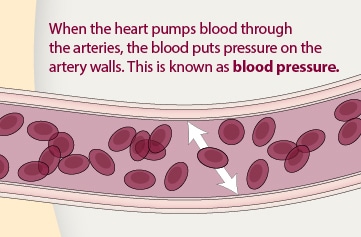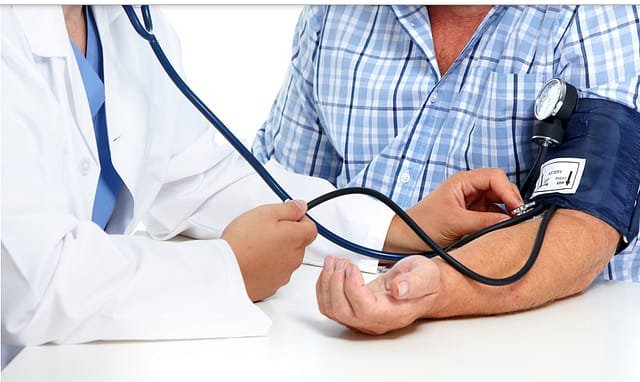- An investigational drug called zilebesiran has been found to be safe and effective in reducing systolic blood pressure in people with mild-to-moderate high blood pressure for up to six months with just one injection.
- Over 1 billion people globally have high blood pressure. Hypertension places a person at a higher risk for various health issues throughout the body.
- Many people have trouble adhering to their high blood pressure medication prescription, leaving them open to risks associated with uncontrolled hypertension.
What is blood pressure?

Blood pressure is the pressure of blood pushing against the walls of your arteries. Arteries carry blood from your heart to other parts of your body.
Your blood pressure normally rises and falls throughout the day.What do blood pressure numbers mean?
Blood pressure is measured using two numbers:
The first number, called systolic blood pressure, measures the pressure in your arteries when your heart beats.
The second number, called diastolic blood pressure, measures the pressure in your arteries when your heart rests between beats.
If the measurement reads 120 systolic and 80 diastolic, you would say, “120 over 80,” or write, “120/80 mmHg.”
An investigational drug
An investigational drug called zilebesiranTrusted Source has been found to be safe and effective in reducing systolic blood pressure in people with mild-to-moderate high blood pressure for up to six months with just one injection.
These findings from the drug’s phase 2 clinical trial were recently presented at the American Heart Association’s Scientific Sessions 2023.
Over 1 billion peopleTrusted Source around the world have high blood pressure, medically known as hypertension.
Past studies show that having high blood pressure increases a person’s risk for several cardiovascular issues, such as stroke, heart failure, and atrial fibrillation.
Additionally, people with hypertension have a higher chance of kidney damageTrusted Source, metabolic syndromeTrusted Source, dementia, and vision issuesTrusted Source.
High blood pressure is treatedTrusted Source through medications and lifestyle changes, such as a healthy diet and increased physical activity.
However, previous research shows not all people with high blood pressure adhere to their prescribed medication, with many stopping taking the drugsTrusted Source after one year. This leaves them open to risks associated with uncontrolled hypertension.
Problems with hypertension medication adherence
According to Dr. George L. Bakris, professor of medicine and director of the American Heart Association Comprehensive Hypertension Center at the University of Chicago Medicine and lead author of this study, over 70% of people with hypertension either do not take their medications or do not take them as prescribed.
“Hence (we) have less than 30% of people with hypertension controlled in the country,” Dr. Bakris told Medical News Today. “This is in spite of the fact that we have over 100 antihypertensive medications for use.”
Dr. Jennifer Wong, a board-certified cardiologist and medical director of Non-Invasive Cardiology at MemorialCare Heart and Vascular Institute at Orange Coast Medical Center in Fountain Valley, CA, told MNT she has found that compliance with high blood pressure medication can be difficult with any daily medication that does not have an immediate tangible effect.
“Uncontrolled hypertension is a major risk factor for developing atherosclerotic diseases,” Dr. Wong continued. “And often it’s such a future event that many patients find it difficult to take …medication regularly. Every 10 mm drop in blood pressure can significantly reduce their risk for these diseases.”
Drug lowered blood pressure for six months
For this study, Dr. Bakris and his team recruited about 400 people with mild-to-moderate high blood pressure, defined as systolic blood pressure of 135-160 mm Hg. All participants were either untreated for high blood pressure or on stable therapy with up to two antihypertensive medications.
Study participants received either 150mg, 300mg, or 600mg doses once every six months, a 300mg dose once every three months of zilebesiran, or a placebo.
After six months, researchers found participants who received zilebesiran were significantly more likely to experience 24-hour average systolic blood pressure reductions of 20 mm Hg or more without needing to take additional high blood pressure medications.

